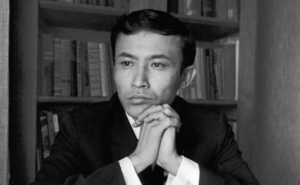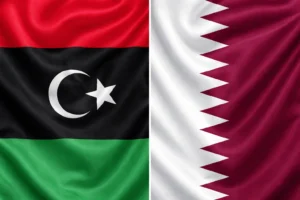Kashmir Solidarity Day
Perceptions and Perspectives of Kashmir Solidarity Day – Supporting the Just Cause

Every year, on 5th February, all Pakistanis and Kashmiris, including the diaspora display their solidarity with Kashmir freedom struggle. More than 9 million Kashmiris are struggling for their inalienable right of self-determination through perseverance, courage and untold sacrifices. Kashmir remains one of the longest illegal and immoral foreign occupation and an unresolved dispute on the agenda of the United Nations Security Council.
Kashmir Dispute has its origins in the independence from British Colonial India in 1947. As per the principles of India Independence Act of 3rd June 1947, geographically contiguous Muslim majority areas were to form of Pakistan and Hindu majority areas were to remain with India. The State of Jammu and Kashmir (J&K), which was a princely state, had an overwhelmingly Muslim majority population and shared a long boundary with Pakistan. Therefore, most Kashmiris wanted to join Pakistan. The ruler of Kashmir, Maharaja Hari Singh wanted to remain independent, which was not possible under the terms of India Independence Act. He initially opted for a ‘Stand Still Agreement ‘that was accepted by Pakistan. India, however, did not respond to this request.
Legislative Assembly of State of Jammu and Kashmir had already adopted a resolution to join Pakistan. Maharaja remained indecisive till 14 August 1947 and an indigenous freedom movement erupted in J&K. Many volunteers from adjacent Muslim areas that formed (west) Pakistan also joined their Muslim brethren in J&K. Meanwhile, another revolt arose in Gilgit and Baltistan, which was nominally part of J&K, and the area was liberated by local freedom fighters.
Under these circumstances, India coerced Maharaja of Kashmir to conclude an ‘instrument of accession’ in an illegal and doubtful manner and Indian military illegally occupied the J&K. The areas liberated by Kashmiri freedom fighters was declared as Azad Jammu And Kashmir and Gilgit and Baltistan opted to join Pakistan. Facing large scale uprising and a freedom movement, India took the issue to the United Nations on January 1, 1948 for immediate ceasefire and dispute resolution under the UN Charter. India also blamed Pakistan for intervention in J&K whereas Pakistan neither had the resources nor any wherewithal to do so.
The UN Security Council (UNSC) adopted several resolutions, including UNSC resolutions 38, 39 and 47 to resolve the Kashmir dispute. The UNSC also appointed United Nations Commission for India and Pakistan (UNCIP) to investigate the dispute and mediate between two countries. UNCIP proposed that “the question of accession [of Jammu and Kashmir] to India or Pakistan to be decided by a free and impartial plebiscite, which was contingent upon having a ceasefire”. India and Pakistan accepted the ceasefire plan and allowed the UN Military Observer Group in India and Pakistan (UNMOGIP) to monitor and supervise the ceasefire and to assist the Military Adviser to UNCIP. The Indian government, under Nehru, also promised that a plebiscite would be conducted in accordance with the aspirations of Kashmiri people.
On January 5, 1949, The Un appointed a ‘Plebiscite Commissioner’. Instead of agreeing to various proposal for conduct of ‘fair and impartial plebiscite’, India kept raising objections to all such proposals made the UNCIP and the UN Plebiscite Commissioner. Sir Owen Dixon, an acknowledged jurist, made very practical proposal for plebiscite to conduct at regional /sub regional level. It is generally considered that Dixon’s formula was very close to long lasting solution of J&K Dispute. Since his proposals was not accepted by both parties, he submitted his report to the UNSC and decided to resign. On 30 March 1951, UNCIP was terminated (UNSC resolution 91), however, the Security Council decided that UNMOGIP should continue to supervise the ceasefire in Jammu and Kashmir.
India adopted an approach of gradually absorbing and annexing State of Jumma and Kashmir in connivance with local Kashmiri politicians. On 26 January 1950, the Indian Constituent Assembly adopted Article 370 of the Constitution which granted a special status and internal autonomy for J&K, with Indian jurisdiction limited to the three areas agreed in the Instrument of Accession, defence, foreign affairs and communications. Thereafter, India has conducted sham elections in J&K to give a semblance of normal democratic process and has portrayed to use such elections as a substitute to plebiscite or a referendum to legitimize her illegal occupation of Kashmir.
Initially, India did manage to seek semblance of support from some political leaders such as Sheik Abdullah and later Mufti Saeed. However, India could neither win over overwhelming support nor could suppress the protracted freedom struggle of Kashmiri people. Kashmir freedom struggle has witness many ebbs and tides, including militant uprising, the Kashmiri Intifada during 1980s and 1990s. In order to brutally crush the just and fair freedom struggle of Kashmiris, India has deployed more than 900,000 military and para-military forces in J&K. India has used state violence indiscriminately, killing more than a hundred thousand Kashmiri youth, besides using gang rapes of women and children and use of pallet guns to terrorize and harass protestors and innocent Kashmiris. The brutalities perpetrated by Indian forces are continuously unabated, despite strong criticism by international human right watch organizations. India has also denied access to international media and representative of the OIC to visit Jammu and Kashmir so as to hide its heinous atrocities which are tantamount to ‘genocide and crimes against humanity’ in clear violation of International Humanitarian Law and the Geneva Conventions. At present, Jammu and Kashmir is the worst military occupied region in the world with the ratio of one military person for every nine non-combatant innocent civilians. With the fear that these atrocities may not be reported by impartial observers, India does not even allow UNMOGIP observer to perform their mandated tasks as assigned by the UNSC.
On August 5, 2019, violating all international conventions, India’s parliament revoked Articles 35A and 370 of its constitution that had accorded the autonomous status with special rights and privileges to occupied Jammu and Kashmir. This reckless decision was not only in contravention to the Indian Constitution but also reflected an abandonment of the democratic and secular principles that India had projected for so long. Through military occupation, large scale genocide and economic annihilation of Kashmiris, India seeks to effect a demographic change and political liquidation State of Jammu and Kashmir. It is reported that India has issued more than four million illegal domicile certificates to non-Kashmiri settlers to obliterate the Kashmiri identity.
Since 1947, the Kashmir issue remains the most contentious dispute between nuclear rivals, Pakistan and India. India and Pakistan have fought three wars and reached to military confrontation many times due to Kashmir dispute. Peaceful resolution of Kashmir dispute is not only essential for peace and progress of the region, but it is equally important for international peace and security, especially given the fact that both belligerents are nuclear powers and have large conventional defence forces.
The UNSC has relegated Kashmir issue to a very low priority and international community has totally abandoned the just and fair demand of Kashmiris for their inalienable right of self-determination. Pakistan, unfortunately is embroiled in multiple crises, including perpetual political uncertainty, perennial economic instability, and recurring internal insecurity threat caused by unending terrorism. On the other hand, India has adopted a totally uncompromising, rather an arrogant, conceited, hegemonic and non-reconciliatory posture. Such dismal situation is not conducive for peaceful resolution of Kashmir dispute. It must be kept in mind that Jammu and Kashmir is a nuclear flash point that can explode any time even with little miscalculation by either party. The Kashmiri youth is totally disenchanted. They see no meaningful progress made by the international community towards implementation of UNSC resolutions. Rather more prevalent impression is that India has been allowed to resort to worst state terrorism to suppress just and fair Kashmir freedom struggle due to global powers’ geopolitical and geo-economic interests served by India.
Therefore, all parties to Kashmir conflict, i.e. the UNSC, India, Pakistan and Kashmiri leadership must be facilitated and persuaded by international community and regional global powers, Russian and China, to find out a mutually accepted peaceful resolution of Kashmir dispute. All Parties Hurriyat Conference (APHC) genuinely represents the legitimate collective aspirations of majority citizens of Jammu and Kashmir.
Therefore, APHC’s presence must be ensured at all international, regional, or bilateral forums. Above all, we need to move beyond expressing our proverbial solidarity with Kashmiris on occasional basis and at ceremonial events. Pakistan needs to pursue its Kashmir policy with more vigor, clarity, consistency and resilience in a manner that reflects real aspirations of Kashmiri people at large.


